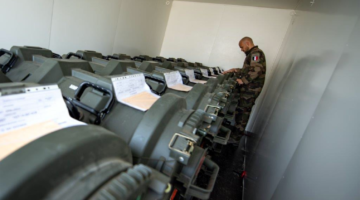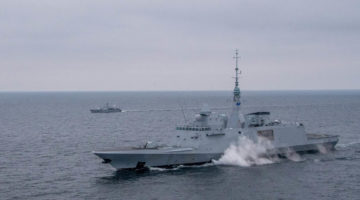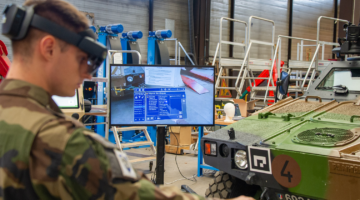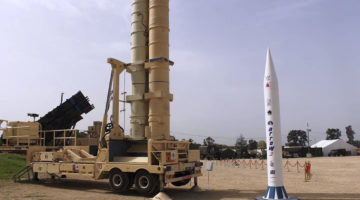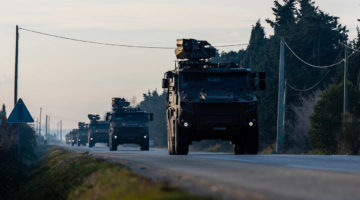By Ross Babbage, Chief Executive Officer, Strategic Forum, Australia1
II. An Australian Common Perception of the Threat, but Disagreement About The Proper Way to Counter It
Within the Australian official community there’s very little dispute about the nature of the challenge posed by the Chinese regime. What tends to be debated is the range of measures that deserve priority, how they can be delivered most effectively and with whom we should coordinate our actions most closely internationally.
Australian diplomats and others have been working closely with partners across the Indo-Pacific, in Europe and elsewhere to discuss ways of jointly dealing with the Xi regime. One of the catalysts for this activity was the stark conclusion that the Australian government reached about four years ago that the security risks of permitting Chinese involvement in Australia’s 5G network were so high as to require firm and immediate action.
When the Malcolm Turnbull-led government became concerned about what Huawei might be able to do with 5G, the Australian Signals Directorate was asked to do some work on the potential impact of involving Huawei in the Australian telecommunications network.
The results were stark and horrifying. The analysis had a big impact on the cabinet. The Australian government was united on the need to strengthen the country’s electronic and broader infrastructure security and to move immediately.
These events also generated a need to explain to our allies, security partners and friends why Australia had taken such a quick and very firm stand. Briefings were soon delivered in Washington and most U.S. agencies quickly came on board. Australian officials have since been active in briefing many governments across the Indo-Pacific, Europe and elsewhere.
A number of European countries have come to conclusions similar to Australia about the potential risks of Chinese involvement in 5G networks.
However, if actually implemented, the proposed new European agreement with China would send the wrong signal as it displays no sort of solidarity with the democracies in Asia and the broader Indo-Pacific.
It’s not only Australia that has been pressured by Beijing. Look at what the Chinese regime has been doing to the Indians, the Vietnamese, the Indonesians, the Malaysians, the Filipinos and also the Japanese, the South Koreans and the Taiwanese. There is also the Chinese regime’s behavior in the island states of the South Pacific.
Some influential Europeans seem not to regard this track record as being terribly important in their calculations.
Look at how the Xi regime has performed in keeping its obligations under the WTO, and also their obligations under the free trade agreements they have with Australia and other countries. What faith can Europeans have that the regime in Beijing will abide by any of the agreement’s terms?
There is also the question of helping President Xi out when he is under political and economic pressure at home. The Chinese regime pushed hard for this agreement so as to demonstrate to its own public that it was making good progress internationally. Does Europe really want to give this authoritarian regime such a break?
In addition the regime has been eager to conclude the European agreement to give some diplomatic maneuver space, vis-à-vis Washington. They wanted to be seen to be not beholden entirely to the new U.S. administration, no matter what direction it takes. I think they have been very keen to get an agreement with someone to give them extra leverage in Washington. And if that someone was the EU, terrific…
—–
1 This is three-part article written by Ross Babbage and published with the authorization of our media partner Second Line of Defense . According to his biography published on Wikipedia, “Ross Babbage (born 1949) is the Chief Executive Officer of Strategic Forum Pty Ltd and a Non-Resident Senior Fellow of the Center for Strategic and Budgetary Assessments (CSBA) in Washington DC. Dr Babbage is also Managing Director of Strategy International, a national security consulting and educational services company. Dr Babbage formerly held the position as Head of Strategic Analysis in the Office of National Assessments and Assistant Secretary for ANZUS and then Force Development in the Department of Defence. He has also been an advisor to various government ministers and department. Babbage was educated at Barker College in Sydney. He subsequently completed bachelor’s and master’s degrees in economics from the University of Sydney and a PhD in International Relations from the Australian National University.”
Illustration © https://www.facebook.com/Stop5GAustralia/

